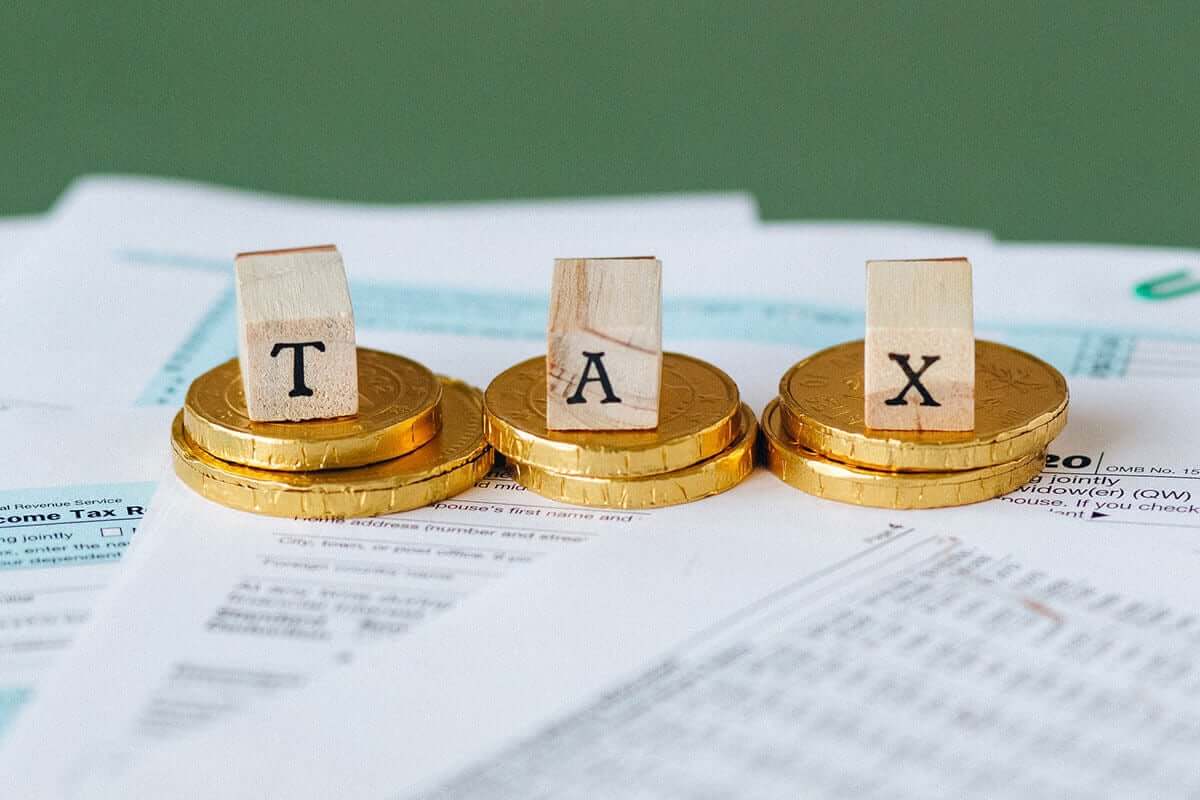Do you own a company or want to invest in a business in the UAE? If so, you must understand the company tax requirements that must be met. Keeping up with the constantly changing UAE corporate tax rate system is necessary if you want to conduct business. In this blog, we’ll review the fundamentals of corporate tax in UAE and provide some helpful pointers for maintaining compliance.
What is Corporate Tax in UAE?

The UAE has a long and complicated history of taxing businesses, and adding VAT in 2018 made things even more complex. In the 1970s, the United Arab Emirates was one of the first countries in the Middle East to have a flat corporate tax rate of 55%. The corporate tax in UAE uses different tax breaks to attract foreign investment and encourage businesses to set up shops in the country.
Know The UAE 2023 Corporate Tax Outline

The UAE’s Corporate Tax is a significant piece of legislation that will alter the way companies in the UAE function. It establishes new laws and regulations, including imposing a 9% flat rate concerning the corporate tax in UAE. This change is set to take place in the UAE corporate tax of 2023 and will significantly affect UAE businesses. This ensures that firms stay competitive and profitable in the long run. needless to say, it will be a landmark decision by UAE Government! Reportedly, the UAE government has clarified that businesses generating turnover of more than AED 1 million a year and profits of more than AED 3,75,000 will be levied with 9% corporate tax from the financial year starting from June 1st, 2023.
And any corporate/business entity generating profits below the aforementioned threshold i.e., DH 3,75,000, will be imposed with a 0% tax rate. The UAE government has taken this step intending to support small businesses. Any non-business income, like income from rental property or any personal investment, will be outside the scope of the new corporate tax rule. This decision aims to cultivate a business ecosystem that will nurture the health of startups, and the country’s overall economy in the long run. Also, if a business has a total revenue of up to AED 3 million or less, it can claim the benefit of ‘Small Business Relief.’
Companies must look at their profit and loss statements to pay the UAE corporate tax rate correctly.
Features of The Corporate Tax
Here are the most critical aspects of the UAE corporate tax of 2023 and what it means for regional companies.
-
- Tax Rates: Companies operating in the UAE are subject to corporate UAE income tax rates of up to 55%.
- Exemptions: Certain activities and business sectors may be exempt from corporate tax.
- Withholding Tax: A withholding tax of 10% is to be paid on certain types of income.
- Double Taxation Treaties: Some countries have signed Double Taxation Treaties with the UAE to avoid double taxation.
- Tax Authority: The Federal Tax Authority oversees all business taxes in the UAE.
- Tax Year End: The UAE tax year ends on 31st December.
-
Who Bears the Tax Burden?

Taxation will apply to LLCs, PSCs, PJSCs, LLPs, and other legal organisations with unique legal bodies. Also, a UAE citizen who owns a foreign partnership business and makes taxable income must pay taxes. The federal government has made it to encourage business between the mainland and the autonomous territories, so companies that operate in free trade zones and follow all laws don’t have to pay UAE taxes.
-
Tariffs
Earnings below AED 375,000 are not subject to UAE income tax; however, those beyond this threshold are subject to a 9% rate. Due to their unique situations, large international corporations will be taxed at different rates.
-
Which Category of People Are Exempted?
A participation exemption from corporation tax will be implemented for the taxable income or the sale of shares in a subordinate entity. Moreover, firms which are 100% owned by the federal government (engaged in the extraction of oils and other commodities and are national non-profit organisations) are not subject to corporate taxes. Along with that, any government-controlled entity, a person who might be engaged in any extractive business activity, non-extractive natural resource business, public benefit entity (an entity established for the overall welfare of the citizens), any kind of investment fund, private pension fund, social security funds are outside the scope of the newly introduced corporate tax rule.
-
Calculating Taxes
In most cases, the UAE corporate tax rate and earnings will be calculated based on the company’s reported net profits or losses. If a business has a loss, it can deduct up to 75% of that amount from its taxes in the future.
-
Tax Groups
A collection of businesses can band together as a “tax group” and be seen by the government as a single company for UAE income tax purposes. To avoid this, the parent or affiliate business must not be a free zone resident or an exempted party.
-
Which Credits Are On Taxes?
The scheme lets the amount of international tax paid in a foreign country be used as a credit against foreign tax income that has not been excluded for international tax purposes.
Is It Possible To Impose Taxes On Free-Zone Businesses?
It is yet to be discovered how or why the new UAE corporate tax will impact businesses based in free trade zones. The administration has confirmed that free zone enterprises will continue to receive the incentives they have signed up for.
Tax Implications For Citizens and Non-citizens
For corporate tax in UAE, residents and non-residents are “taxable persons.”
-
- An entity with its primary place of business in the United Arab Emirates is known as a “resident person” under the country’s laws (including free zone entities). It also includes any legal entity outside the United Arab Emirates whose business is run from there.
- Any individual who is not a UAE resident but owns a business registered in the UAE is considered a non-resident. For a non-UAE resident, the tax rate on state-sourced income is 0%.
Non-Resident Income in the UAE
Foreign income in the UAE is subject to taxation, depending on the country of origin. Non-residents are taxed on their income earned or received in the UAE, while residents are taxed at up to 55%.
Does Dubai Impose Taxes on Personal Income?
In Dubai, personal income is not taxed. Dubai is one of the few countries worldwide that does not tax its inhabitants’ and residents’ income. In Dubai, the only form of personal income tax is the 5% value-added tax (VAT) on all products and services.
Revenue Streams that Are Non-Taxable
The following list will help you figure out which sources of income are not taxable for a UAE company’s income tax purposes:
-
- Dividends or other profit distributions received from legal companies established in or residing in the UAE.
- Dividends or other profit distributions from foreign legal companies in which the taxpayer owns more than 5% are also not taxed as long as the taxpayer has kept the ownership stake for at least a year.
Allowances on Taxes

Here are some of the most common tax reliefs on the corporate tax in UAE:
-
- Tax-free income : UAE residents are eligible for tax-free income from sources outside the country, including investments, rental income, and royalties.
- VAT exemption : Companies registered in the UAE are exempt from paying VAT.
- Tax credits : Businesses registered in the UAE may get tax credits, such as credits for research and development and credits for starting a business.
- Free Zones : Companies setting up their businesses in Dubai’s free zones are eligible for various tax exemptions, such as corporate tax, import duties, capital gains tax, and personal income tax.
- Tax holidays : Businesses registered can get UAE tax breaks and no taxes on certain things.
- Double taxation relief : Companies registered in the UAE are eligible for double taxation relief when paying taxes to two or more countries.
- Tax deductions : Companies registered in the UAE are eligible for deductions on specific expenses, such as research and development costs and business-related travel expenses.
Qualifying Groups v/s Tax Groups
Check the table below for the quantifying groups and tax groups comparison:
|
Qualifying Groups |
Tax groups |
|
Qualifying groups are those registered with the Ministry of Economy |
Tax groups are registered with the Federal Tax Authority |
|
Benefit from certain tax exemptions |
Pay taxes on all types of income |
|
Required to submit audited accounts annually |
File returns quarterly |
|
Have access to financial incentives for investment |
Do not have such privileges |
|
Comply with certain regulations |
Comply with all local, federal, and international laws |
Are Capital Gains From Dividends Going To Be Taxed in Dubai?
Yes, there will be capital gains taxes on dividends in Dubai. Dubai’s government has recently enacted a new law requiring investors to pay a specific tax on the capital gains from their dividend income.
Conclusion
The structure of the UAE corporate tax of 2023 in business is complicated and dynamic. Companies must be up to date on legislation and prospective tax issues. The government has recently implemented certain adjustments to improve the corporate tax in the UAE for firms.
To maximise earnings, firms operating in the UAE corporate tax must take advantage of (corporate) tax breaks. Businesses will be well-positioned to profit from the UAE’s favourable corporate tax climate if they know the legislation and remain up to speed on the newest changes.
Some More Useful Articles for you :
|
Guide To Excise Tax in UAE |
|
|
All About Tax System in UAE |
|
|
Understand Excise Tax Return in UAE |
|
|
How To Qualify Mortgage in UAE |
Frequently Asked Question (FAQs)
The United Arab Emirates (UAE) is a tax-free country for business. However, the UAE recently introduced the corporate tax in specific sectors as part of a new economic diversification policy.
The Federal Tax Authority collects corporate tax in the UAE, which applies to companies in a specific range of sectors. These include the oil, banking, insurance and real estate sectors.
The UAE's economic diversification policy aims to reduce reliance on oil revenues and encourage investment in various sectors. The corporate tax in UAE is one way the country is trying to generate additional revenue and promote economic growth.
The UAE corporate tax is currently set at 55%. This includes a 10% tax on profits of up to AED 375,000, the lowest rate among the Gulf Cooperation Council (GCC) countries.
The UAE taxes are mainly three types: corporate tax, value-added tax (VAT) and customs duty. VAT applies to goods and services, while customs duty applies to imported goods.
The UAE corporate tax rate in Dubai is currently at 55%. This includes a 10% tax on profits of more than AED 375,000. This UAE corporate tax rate applies to all companies in Dubai, regardless of the sector. Is UAE tax-free for business?
Who pays corporate tax in the UAE?
Why is corporate tax introduced in the UAE?
How much is the corporate tax in the UAE?
What type of taxes are there in the UAE?
How much is the corporate tax in Dubai?




